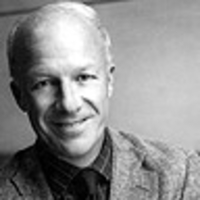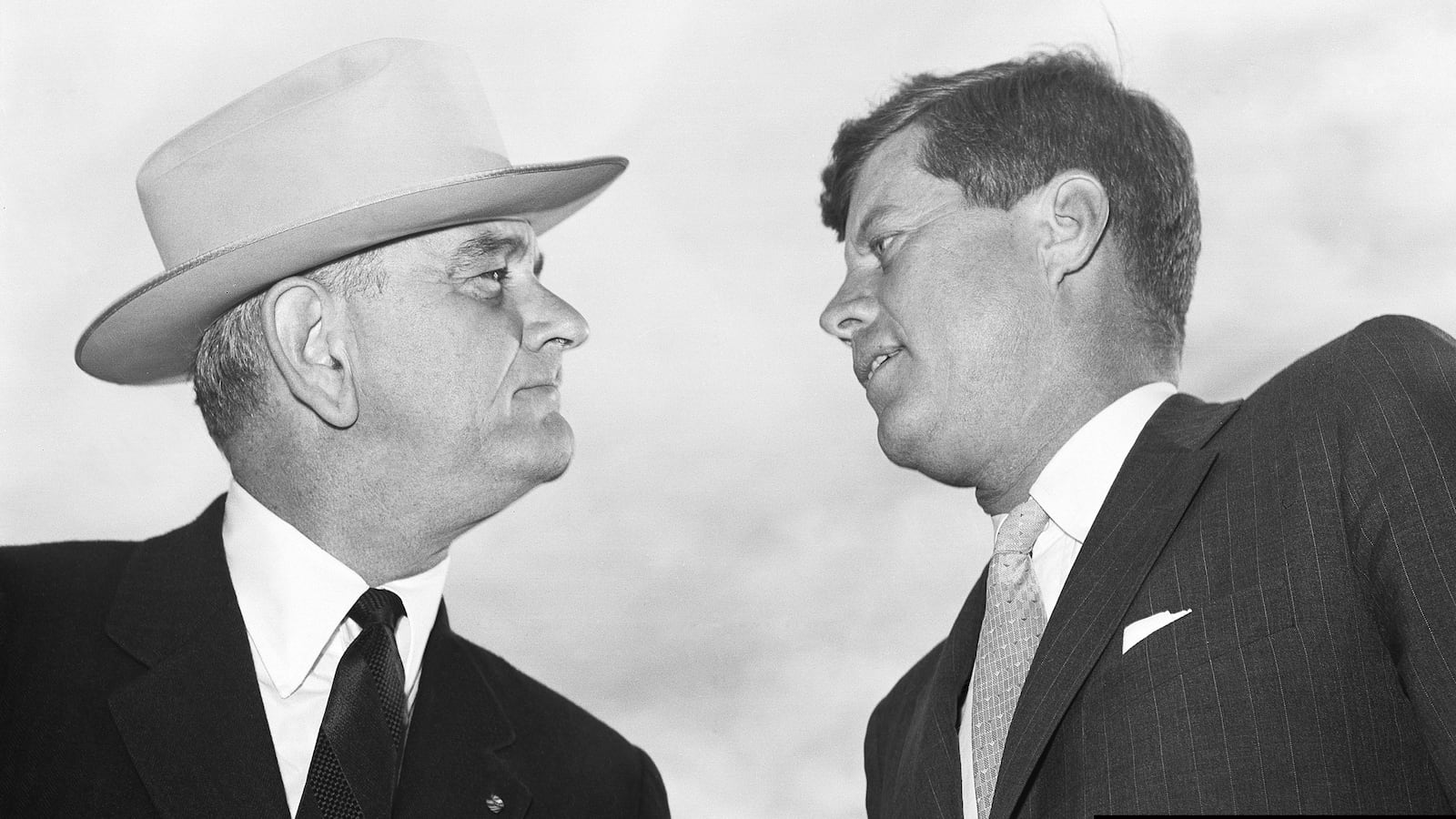President Kennedy’s secretary Evelyn Lincoln wrote in her 1968 book Kennedy and Johnson that November 19, 1963 had been “one of the most pleasant days” she could remember in the White House. Kennedy’s schedule was light and he had spent long stretches of time in the rocking chair in her office, speaking pensively as he rocked.
“You know, if I am reelected in ’64,” he said. “I am going to spend more and more time making government service an honorable career,” adding, “I am going to advocate changing some of the outmoded rules and regulations in Congress, such as the seniority rule. To this I will need as a running mate in sixty-four a man who believes as I do.” As if thinking out loud, he continued, “. . . it is too early to make an announcement about another running mate—that will perhaps wait until the convention.”
“Who is your choice of a running mate?” Lincoln asked.
Looking straight ahead and without hesitating he replied, “At this time I am thinking about Governor Terry Sanford of North Carolina. But it will not be Lyndon.”
Sanford was a logical replacement. He had supported Kennedy in 1960 and since then had impressed him with his economic and antipoverty programs. He later said that although he had never discussed the vice-presidency with Kennedy, he knew that he had become exasperated with Johnson. He believed Lincoln’s account, but thought Kennedy’s statement might have been “one of those things that you say . . . just to get it off your chest.”
Others have been less charitable about Lincoln. In his 1977 biography of Robert Kennedy, presidential advisor Arthur Schlesinger questioned her veracity, writing that when he informed Bobby of her account of the November 19 conversation, Bobby had insisted that his brother never intended to replace Johnson, adding, “Can you imagine the President ever having a talk with Evelyn about a subject like that?” Schlesinger also wrote that Johnson’s place on the ticket in 1964 “was a given.” Historian Robert Caro writes that Schlesinger’s dismissal of the dump-Johnson story was “in line with that given in virtually all books on Kennedy or Johnson,” and recounts interviews with Schlesinger and Sorensen in which they described Lincoln “as a flighty, rather rattlebrained woman.”
Considering this, and Lincoln’s well known dislike of Johnson, I was skeptical of her account until I discovered in her personal papers in the John F. Kennedy Library two sheets of four by five and a half inch memorandum paper headed “THE WHITE HOUSE – Washington,” and dated “Nov 19, 1963.” She had written on both sides in shorthand, and a transcription showed that Kennedy’s words were exactly as she had reported them in her book.
The question of whether Kennedy was seriously contemplating replacing Johnson, or was simply trying out the idea on Lincoln still remained. What is certain is that if he was considering it, he would not have tipped his hand to a member of Congress or to a journalist in the fall of 1963, and risk turning the mercurial Johnson into a lame duck vice-president and bitter enemy a year before the convention, nor would he have necessarily confided in Arthur Schlesinger or Bobby Kennedy. Ted Sorensen, who had been his principal aide and speechwriter for ten years believed that “different parts of his life, works, and thoughts were seen by many people but no one saw it all.” Because Kennedy compartmentalized his friends and family it is entirely possible that he would have revealed his plans to Lincoln while keeping Bobby in the dark. When former Cabinet member Abraham Ribicoff went sailing off Palm Beach with Bobby several months after the assassination he was shocked to find that he knew things about JFK that Bobby did not, an experience confirming his sense that Kennedy “only exposed different facets of himself to different people.”
By 1963 Kennedy had become increasingly concerned that Johnson was unfit to assume the only vice-presidential duty that mattered: assuming the presidency. He had made him chairman of the Presidential Commission on Equal Employment Opportunity only to have its members gripe that he showed little leadership. “That man can’t run this committee,” he complained to Bobby. “Can you think of anything more deplorable than him trying to run the United States?” His uneasiness about a Johnson presidency may have also prompted him to ask Charlie Bartlett in September 1963, “How do you think Lyndon would be if I got killed?”
Evelyn Lincoln noticed Johnson’s name appearing less and less often on the lists of invitees to crucial policy meetings in 1963, and her record of the private conferences between him and Kennedy showed them meeting alone for over ten hours in 1961 but only for seventy-five minutes in 1963. By the fall of 1963 their relationship had reached a nadir. An evolving scandal involving the notorious Capitol Hill fixer Bobby Baker threatened to tarnish Johnson, and in the fall of 1963 Johnson had vehemently opposed Kennedy’s decision to sell surplus wheat to the Soviet Union, telling Kennedy aide Ken O’Donnell that it was the worst political mistake Kennedy had made since becoming president, and then adding “Tell him I said that.”
Johnson was noticeably absent when Kennedy convened the first formal meeting of his reelection team on Tuesday November 12. Sorensen thought he had been excluded because he was “not part of the inner circle and did not have the warmest relations with—or full confidence of—everyone in that room.” The next day Kennedy stopped at Lincoln’s desk to chat as she was reading the memorandums from the meeting. She remarked that staging a convention as electrifying as the one in 1960 had been might be difficult because everyone knew what was going to happen. “Oh, I don’t know,” he replied. “There might be a change in the ticket.”
In Sorensen’s 2008 memoirs he reported that when he asked Jackie to read the manuscript of his 1965 book, Kennedy, and make comments in the margins, she had deleted or modified every complimentary reference to Johnson. She criticized his statement that the two men had enjoyed “a deep mutual respect,” writing, “I think you overstate this a bit—from JFK’s side,” and then crossed out the entire sentence. She told him that his “glowing references” to Johnson did not “reflect President Kennedy’s thinking,” and added, “You must know—as well or better than I—his steadily diminishing opinion of him then. As his term progressed, he grew more and more concerned about what would happen if LBJ ever became president. He was truly frightened at the prospect.”
The transcripts of Jackie Kennedy’s 1964 oral history interviews with Arthur Schlesinger were published in 2011. In them she described her husband becoming increasingly worried about the prospect of a Johnson presidency, repeatedly telling her, “Oh, God, can you ever imagine what would happen to the country if Johnson was president?”





